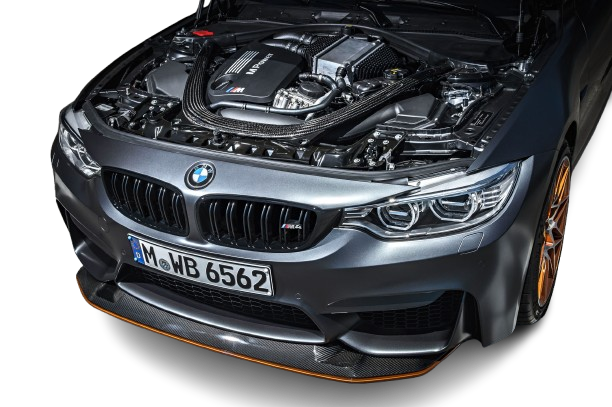Car Engine Repairs: The Complete Guide to Diagnosis, Repairs, and Maintenance
Your car’s engine is its most critical component—the powerhouse that converts fuel into motion. But like all machines, engines are prone to wear, tear, and failures over time. Whether you’re a new driver, a DIY enthusiast, or someone just looking to understand your vehicle better, this guide will help you learn everything about car engine repairs, from symptoms and solutions to maintenance and prevention.
🧰 How Does a Car Engine Work?
At its core, the engine converts fuel into energy through combustion. This process happens inside cylinders, where air and fuel mix, ignite, and push pistons, which rotate the crankshaft, ultimately turning your wheels.
- Modern car engines come in various types:
- Petrol Engines: Quieter and smoother, popular in passenger cars.
- Diesel Engines: More fuel-efficient and durable, common in heavy vehicles.
- Hybrid Engines: Combining combustion and electric motors for better economy.
- Electric Motors: Fully electric vehicles have no traditional engine but need care too.
- Understanding these basics helps you grasp why maintenance and prompt repairs matter.
🚗 Common Engine Problems: Every Car Owner Should Know
Engines are complex, but their failures often manifest in predictable ways. Here are the most common issues:
1️⃣ Engine Misfire
When one or more cylinders fail to fire properly, your engine may feel rough, lose power, or waste fuel. Faulty spark plugs, coils, or injectors often cause this.
2️⃣ Oil Leaks
Oil stains under your car, burning smells, or low oil levels point to worn seals, gaskets, or damaged pans.
3️⃣ Overheating
Coolant leaks, clogged radiators, failed water pumps, or broken fans can lead to engine overheating.
4️⃣ Noisy Engine
Knocking, ticking, or rattling sounds may mean low oil, worn bearings, or valve issues.
5️⃣ Blown Head Gasket
When the seal between the block and cylinder head fails, it can cause smoke, leaks, and overheating.
6️⃣ Timing Belt/Chain Failure
A snapped or stretched belt can destroy internal components due to loss of synchronization.
7️⃣ Smoke from Exhaust
Blue (oil burning), white (coolant burning), or black (excess fuel) smoke all indicate trouble.
🔧 Most Common Engine Repairs
✅ Engine Diagnosis & Inspection
Technicians use advanced diagnostic tools to scan error codes and pinpoint issues before repairs begin.
✅ Head Gasket Replacement
Necessary if the gasket fails, causing leaks or overheating. This repair involves removing the cylinder head.
✅ Engine Overhaul & Rebuild
It involves complete disassembly, replacing worn components, and reassembling—essentially making the engine like new.
✅ Timing Belt/Chain Replacement
Critical for keeping engine components synchronized; usually replaced every 60,000–100,000 km.
✅ Oil Leak Repair
Replacing seals and gaskets to stop leaks and protect internal components.
✅ Overheating Repair
Fixing the radiator, thermostat, water pump, or hoses to regulate temperature.
✅ Engine Mount Replacement
Old mounts can crack, causing vibrations; replacing them keeps the engine secure.
✅ Engine Replacement
Sometimes replacing the entire engine is more economical than repairing it.
✅ Engine Tuning
Fine-tuning for better power, fuel economy, and responsiveness.
🌡 Engine Overheating: Symptoms & Solutions
Overheating is one of the most dangerous issues an engine can face.
Symptoms:
- Temperature gauge in the red zone
- Steam or smoke from the hood
- Burning smell
- Reduced power
- Warning lights on the dashboard
Solutions:
- Safely pull over and let the engine cool
- Check coolant level
- Look for leaks or broken belts
- Make sure the radiator fan is working
- Call a professional if you can’t identify the problem
- Prevent overheating with regular coolant flushes, belt inspections, and radiator checks.
🛠 Engine Maintenance & Preventive Care
Keeping your engine in good shape saves money and extends its life.
Preventive Tips:
- ✅ Change oil & oil filters regularly
- ✅ Check coolant levels & quality
- ✅ Replace air & fuel filters on time
- ✅ Inspect belts & hoses for wear
- ✅ Monitor warning lights and unusual noises
- ✅ Use quality fuel and OEM-grade parts
🪛 Engine Repairs vs. Replacement
Sometimes repairs are no longer cost-effective—when internal damage is extensive or the engine is too old.
When to Replace:
Severe internal wear (pistons, crankshaft, block)
Multiple expensive repairs needed
Overheating or seizure beyond repair
High mileage and low reliability
A rebuilt or new engine can be a smart long-term investment in such cases.
🚀 Why Regular Maintenance Matters
Regular servicing ensures:
- ✅ Better fuel efficiency
- ✅ Lower emissions
- ✅ Longer engine life
- ✅ Fewer breakdowns
- ✅ Higher resale value
Neglecting maintenance can lead to catastrophic failures that are much costlier to fix.
🔩 Top Engine Spare Part Brands
When repairing an engine, quality parts matter. Trusted global brands include:
Mahle—Pistons, rings, filters
Bosch—Fuel systems, sensors, ignition
Federal-Mogul (Tenneco)—Bearings, gaskets, valves
NGK/NTK—Spark plugs, oxygen sensors
Denso—Ignition coils, injectors
Always choose OEM or equivalent parts for reliability and durability.
💬 FAQs About Engine Repairs
Q: How much does an engine repair cost?
A: Minor repairs start around ₹2,000–₹10,000; major rebuilds or replacements can cost ₹50,000 or more.
Q: How long does engine repair take?
A: Small fixes: 1–3 hours; overhauls: 2–5 days.
Q: Can I drive with a minor engine issue?
A: It’s risky—even minor problems can escalate quickly.
Q: How long does an engine last?
A: With good maintenance, many engines last over 200,000 km or 10–15 years.
Q: Do electric vehicles need engine repairs?
A: EVs don’t have a combustion engine but need motor and battery care.
🚗 Engine Noise: What Does It Mean?
- Knocking: Possible worn bearings or low-octane fuel.
- Ticking: Often low oil or valve issues.
- Squealing: Belts may be loose or worn.
- Hissing: Coolant or vacuum leaks.
- Pay attention to sounds—they’re often early warnings.
🧪 Engine Oils: Choosing the Right One
- Oil lubricates, cools, and cleans the engine.
- Use the grade recommended in your owner’s manual (e.g., 5W-30, 10W-40).
- Synthetic oils generally last longer and perform better.
- Change oil every 5,000–10,000 km depending on your driving and oil type.
🔧 Engine Diagnosis: How Mechanics Find Problems
Modern vehicles use On-Board Diagnostics (OBD) systems that store error codes when something’s wrong.
Mechanics:
- Connect a scanner to retrieve codes.
- Perform visual inspections.
- Test components (like compression tests).
- This ensures accurate and efficient repairs.
🧰 DIY vs. Professional Engine Repairs
DIY:
Suitable for minor maintenance (oil, filters, belts).
Requires tools, knowledge, and patience.
Professional:
Ideal for complex repairs (internal parts, rebuilds, electronics).
Certified technicians and specialized equipment ensure the job is done right.
💨What Do Different Exhaust Smokes Mean?
- Blue Smoke: Burning oil.
- White Smoke: Coolant leak (possible head gasket failure).
- Black Smoke: Too much fuel (possible injector or sensor fault).
- Any abnormal smoke should be checked immediately.
🛞 Does Driving Style Affect Engine Life?
Yes! Aggressive driving—rapid acceleration, constant high RPMs, and heavy braking—wears out the engine faster. Smooth, consistent driving extends its life.
🌟 Common Engine Myths Debunked
❌ Premium fuel always improves performance.
Truth: Only use premium if your engine requires it.
❌ You must warm up your car for 10 minutes.
Truth: Modern engines warm up faster when driven gently.
❌ Changing oil every 1,000 km is necessary.
Truth: Follow the schedule in your owner’s manual—usually every 5,000–10,000 km.
🧯 What to Do if Your Engine Catches Fire
🚨 Turn off the engine, leave the car immediately, move to a safe distance, and call emergency services. Never open the hood—oxygen feeds the flames.
📋 Engine Maintenance Checklist
✅ Check oil & coolant levels weekly.
✅ Inspect belts & hoses monthly.
✅ Change oil & filters every 5,000–10,000 km.
✅ Flush coolant every 1–2 years.
✅ Service spark plugs and ignition every 40,000–100,000 km.
✅ Keep your engine bay clean to spot leaks early.
🔎 When to Consider Engine Upgrades
If you want more power, better fuel economy, or cleaner emissions, upgrading components like the ECU, air intake, or exhaust system can help—but consult an expert to ensure compatibility.
🌟 Final Thoughts
Your car’s engine is a marvel of engineering, but it needs care. Regular maintenance and prompt attention to problems keep it reliable, efficient, and powerful. Learn to recognize the warning signs, schedule routine checks, and use quality parts to enjoy trouble-free driving for years.
If your engine shows any symptoms—from noises and leaks to smoke and warning lights—don’t ignore them. Whether you choose to DIY or visit a professional mechanic, understanding your engine gives you confidence on the road.
Take care of your engine, and it will take care of you. 🚗✨
🚗 Need Expert Engine Repairs in Kolkata? Contact Us Today! – 11 Motors
Is your car showing signs of engine trouble? Don’t wait until it’s too late! Trust the experts to diagnose and fix your engine with precision and care.
We offer:
✅ Professional diagnosis & repairs
✅ Genuine OEM & premium spare parts
✅ Service for all car brands—from hatchbacks to luxury cars
✅ Transparent pricing & quick turnaround
Visit our website to book your engine repair or maintenance service now:
Let us keep your car’s heart running strong!


